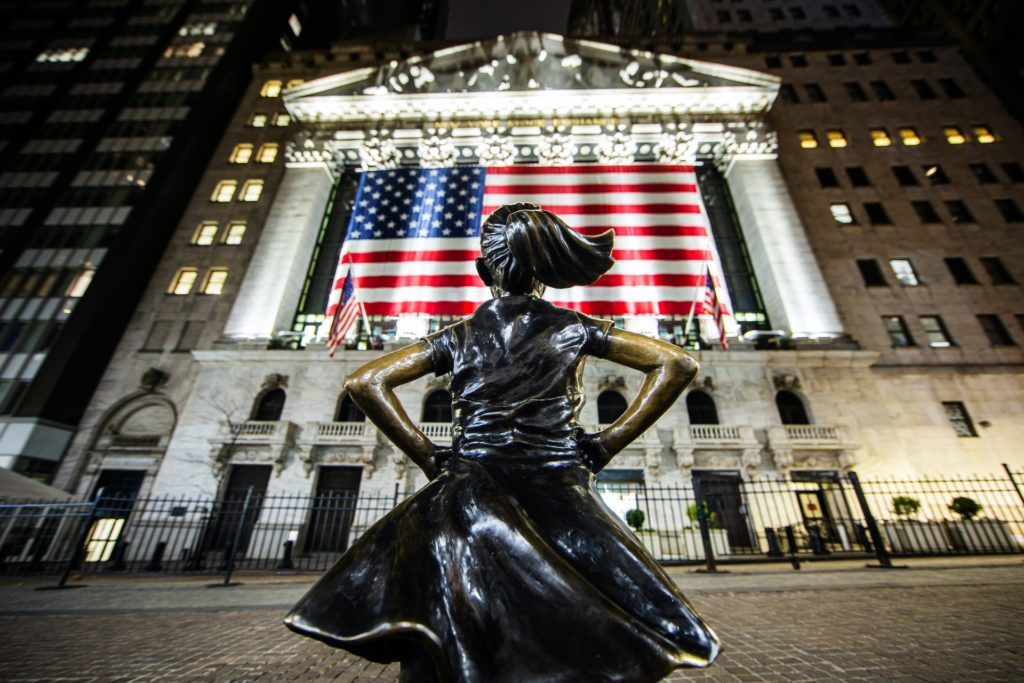And all we got were some lousy meme stocks
In September 2011, Zuccotti Park was overtaken for the Occupy Wall Street movement by protesters calling attention to corporate greed and wealth inequality. Not much has changed, except that the 1% have placed their thumb on the scales, since today’s wealth gap is worse than 1789’s France. We all know how that turned out—hint: lots of heads rolling, then Napoleon entered the chat. Occupy’s leaderless decentralized spirit has prevailed, and we witnessed its collective digital power earlier this year with GameStop’s social collusion.
Marketing Wall Street
The stock market has a long history of being reserved for the wealthy, which in many ways makes sense. However, barring unaccredited investors from Wall Street includes over 90% of households in America, which just isn’t fair. 10 years post-Occupy and the only change on that front is how finance is marketed to consumers. Thanks to apps like Robinhood, which frames itself as for the little folks (while enriching major Wall Street firms), there’s a perception that finance has truly been democratized. Well no, not really.
Novice investors earnestly enter the market only to be bamboozled later. Remember, Robinhood was fined by the SEC for repeatedly misleading and deceiving consumers. Wall Street has just gotten better at disguising themselves.
Cultural progression
Today’s financial landscape is cluttered by meme stocks, predatory trading apps and Mr. Goxx, a crypto trading hamster who’s outperforming Warren Buffett, Bitcoin and the S&P 500.
Culturally, we’ve come a long way since the 2011 days of Occupy Wall Street. Today’s lifestyle of excess and wealth—private jets, exotic vacations, expensive cars—has become the norm online. That makes Seth Godin’s recent blog about speculation being a new luxury good, particularly interesting. From a consumer perspective, luxury goods are meant to signal wealth to others, and in 2011 that tended to amount to physical purchases like designer handbags or flashy cars. Given the context of today’s staggering wealth gap, owning a fractional slice of metadata is the most luxury many folks can afford these days. In 2011 we drove expensive cars to show off, now we brag about meme investment plays instead.
Social collusion
As the GameStop debacle demonstrated, the desperation in the wake of 2008 hasn’t dissipated, it simply shapeshifted. Just as the vengeful Reddit masses began to move markets through social collusion, the game got shut down and the Feds stepped in to investigate. Even Steve Wonder noticed that when the house started to lose, the game abruptly ended. And even as rules were erected, novice investors remained at the mercy of gamified fintech apps.
The decentralized structure of Reddit trading harkens back to the roots of Occupy Wall Street, a leaderless movement. A decade later, the spirit of Occupy lives stronger due in large part to social connectivity. Occupy’s simmering resentment digitally manifested into social collusion, the most effective method of striking back so far. It’s only a matter of time before Reddit traders do it once more with the added support of financial Discords. Happy 10th birthday Occupy Wall Street and cheers to the next ten years of revolution! Ahem, excuse me.. evolution!
Join the DigitalAMN PAI Ecosystem— Learn more, contact us here or email info@digitalamn.com
How GameStop Was Effective Marketing for Penny Stocks and Equity Crowdfunding
3 Common Mistakes Retail Investors Make in the Market
Retail Investors Are Seduced by Meme Stocks, but the Emperor Has No Clothes


